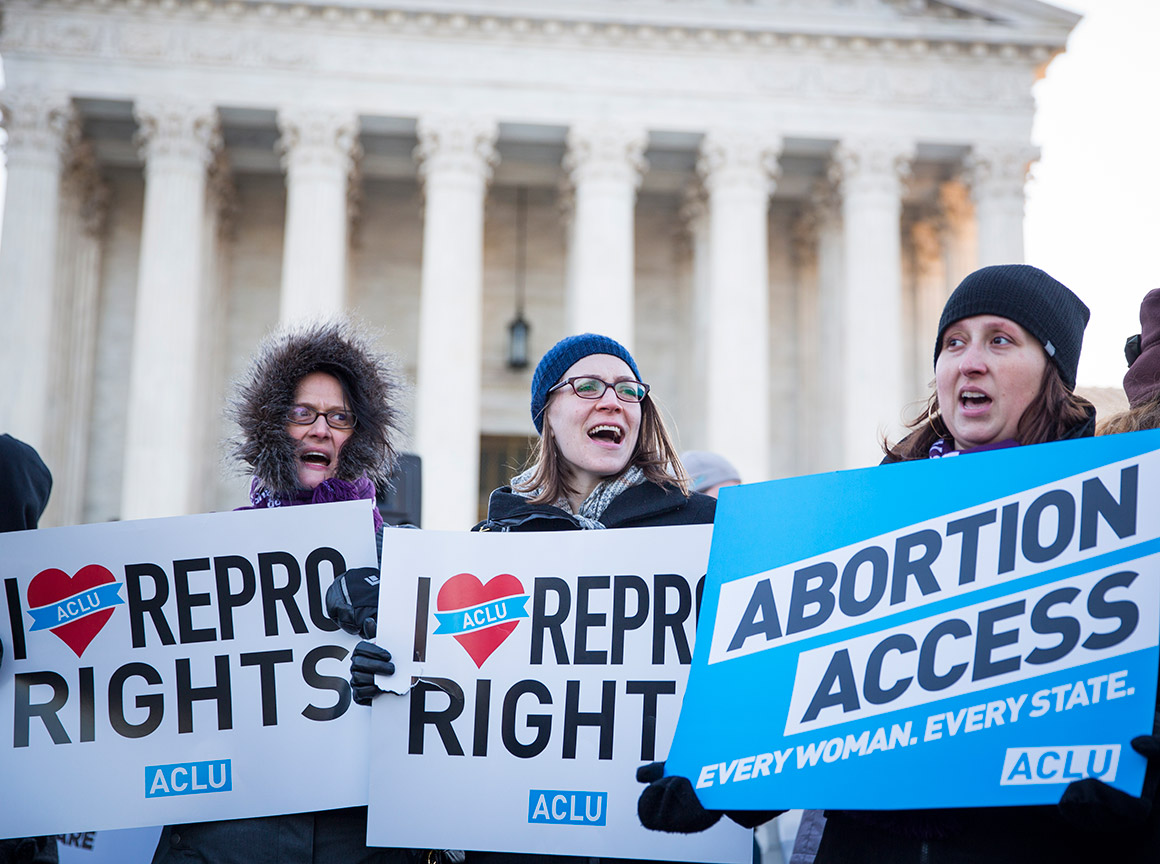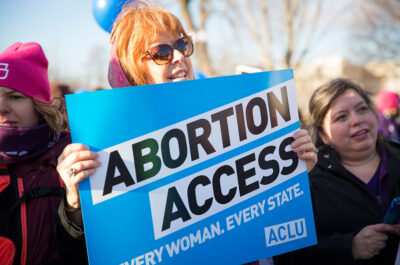
Whole Woman's Health v. Hellerstedt
What's at Stake
Whether Texas may impose onerous burdens on the state’s abortion clinics despite evidence that shows that the provisions undermine women’s health.
Summary
In this case, the Supreme Court is considering two provisions of a Texas law, HB2, that impose medically unnecessary regulations on doctors and facilities that provide abortions. One requires doctors performing abortions to have admitting privileges at a hospital within 30 miles of the clinic. And the other requires abortion clinics to meet the standards for an ambulatory surgical center. These restrictions are commonly referred to as TRAP laws (Targeted Regulation of Abortion Providers).
While on the surface these laws may sound like they aim to protect women’s health, medical experts say that these laws are unnecessary because abortion is an incredibly safe procedure. In fact, the leading medical groups, like the American Medical Association and the American College of Obstetricians and Gynecologists, oppose these laws because the jeopardize women’s health by decimating access to abortion. Indeed, when signing some of these restrictions into law, some elected officials have stated their true intent: stopping women from getting abortions.
The regulations have had a profound impact on abortion access in Texas. Before the restrictions went into effect, the state had more than 40 clinics that provided abortion services. Currently, there are only 10 clinics left in a state with 5.4 million women of reproductive age.
The Supreme Court’s decision will affect not only the fate of women’s access to abortion in Texas, but in much of the rest of the country as well. This decision in the Texas case may well affect what restrictions states are permitted to have for generations to come.
UPDATE - 6/27/16: The Supreme Court struck down both provisions of HB2—both the admitting privileges requirement and the requirement that all abortion clinics have facilities comparable to an outpatient surgical center. Both the admitting privileges and surgical center requirements place a substantial obstacle in the path of women seeking a previability abortion, constitute an undue burden on abortion access, and thus violate the Constitution.
Legal Documents
-
06/27/2016
Whole Woman's Health v. Hellerstedt - Ruling
Date Filed: 06/27/2016
-
01/05/2016
Whole Woman's Health v. Cole - Amicus Brief
Date Filed: 01/05/2016
Press Releases
Supreme Court Issues a Victory for Women in Texas Abortion Case


